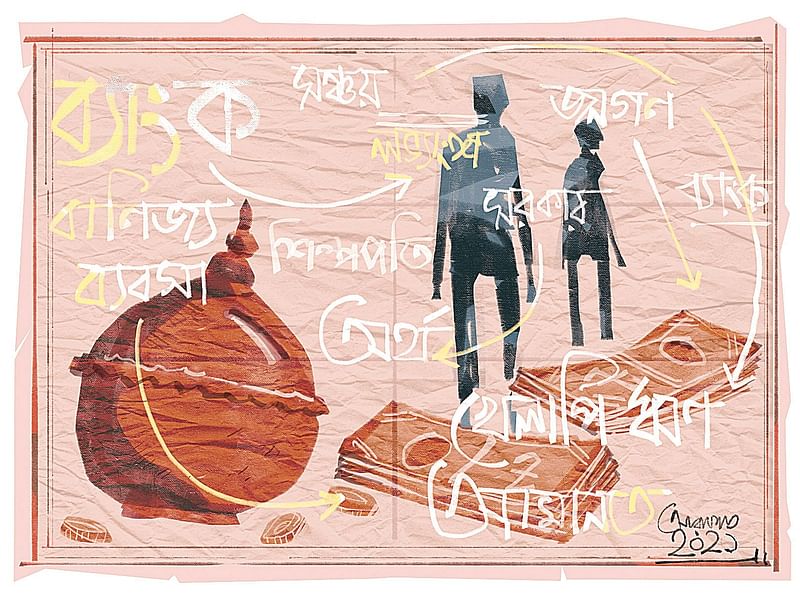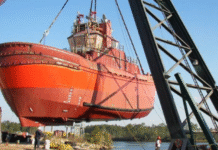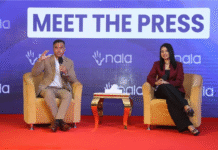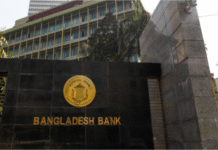Prothom Alo

There have been huge discourse and criticism in the political arena and among experts after news was published on 25 April that Federation of Bangladesh Chambers of Commerce and Industries (FBCCI) has taken a decision to set up their own bank, insurance companies, universities and medical colleges.
The tenure of the outgoing president is going to end in a few days and setting up bank, insurance companies, universities and medical colleges through a decision taken during his tenure will be regarded as a major contribution in future. As many businesspeople and industrialists including former FBCCI president think the matter of establishing bank as an unusual and unnecessary appeal and it requires some discussion and analysis.
Regarding this, my commentary was published in Porthom Alo on 26 April 2021, in which I have predicted the FBCCI authorities will be given clearance for setting a bank soon. Today, I am going to clarify my stance on the matter.
I call it a ‘peculiar appeal’ because all owners of the banks in Bangladesh are either leaders or influential members of any business–industrialist group or association affiliated with the FBCCI members. Among them, many families have centralised the ownership of the banks. Even it is also found that those who initially were entrepreneurs and shareholders of a bank jumped to another bank selling their shares at a higher price. Or they laundered the money and flew abroad with their families.
Settling of politicians and their relatives abroad after making millions of taka through such businesses is very much popular as crony capitalism political culture in the country. Since the majority of business and industrialists’ groups are run under family ownership and management in the country, the main ownership and management of most of the banks have gradually come under sole family control. The recent dispute of brothers and sister over ownership and management of National Bank Limited has brought many incidents to limelight that feud exists among family members over the control of a bank.
Though, shares of the banks are traded at the stock markets as public limited company, but there is no possibility that general shareholders will ever have the control of the banks. Several top businessmen of the country have been buying large number of shares of several banks in various ways using different names. A businessperson from Chattogram is said to have established ownership on seven banks. I don’t know whether any other country provides a legal jurisdiction to establish sole control over bank’s ownership. Several banks have even been established under the ownership of the government’s forces including armed forces, Border Guard Bangladesh (BGB), police, Ansar and VDP or under the ownership of an NGO.
That’s why some say what fault is there, if FBCCI appeals for a bank. The law doesn’t bar it to do so. The matter seems to be ‘peculiar’ because the bank owners are the targeted group of the country’s businesspeople and industrialists. Despite this, why will FBCCI have to venture into the banking business separately? Who will make profit from it? Aren’t we seeing here one more strategy of the FBCCI leaders to make profit by including some businesspersons, who were earlier dropped, in the new bank?
I have been conducting research on the banking sector in Bangladesh since 1998 when I was the director general of Bangladesh Institute of Management (BIM) for three years. Currently, 61 banks operate in Bangladesh with process underway for several others to get license. Such banks weren’t established for economic purposes, rather these have been set up for political purpose and nepotism. Other than the leaders, activists and supporters who are blindly loyal to Awami League, majority of the country’s people will admit many banks have been set up in the country than required. The importance of economic interest was not given when the various matters have been considered to give license for banks after the grand alliance came to power in 2009. Had the existing banks been encouraged to expand their branches to provide services in remote areas across the country instead of establishing new banks, this facility would have been achieved at a very low cost.
If fact, new banks have been set up only for the urge of crony capitalist politics and nepotism even after knowing the facts that number of the banks are more than required. Objection raised by Bangladesh Bank have been ignored repeatedly. The central bank continues to play role of a helpless spectator. There are several political leaders’ close relatives among those lucky people who have got easy way to become millionaire after securing license to own a bank. Many people may not notice that no matter how serious the crisis of default loan is in the country’s banking sector. Almost all private commercial banks have been making huge profit every year.
So, those who have managed to secure license for bank have become the owner of millions of taka easily because of profit share. For this reason, this political corruption of distributing bank ownership is a classic example of corny capitalism. Many of these bank-entrepreneurs have got the license to establish bank because of political connection and nepotism. They then have become entrepreneurs and directors of the banks without the capital since other businesspersons invested the money. That means majority of capital invested in their shares might have been paid by other directors of the banks. Majority of these directors are businesspersons and industrialists, who have gained sole control over the bank loans getting the ownership of the banks. The culture of loan swap among banks has reached a terrible level although the Bank Company Act imposes various rules and regulations on getting loan from their own banks.
Everyone knows that loan default is the most serious problem of the banking sector in Bangladesh. According to the IMF, as of June 2019, loan default in Bangladesh stood at a staggering Tk 2.4 trillion (240,167 crore). The amount included Tk 1.12 trillion (112,425 crore) classified loans as mentioned by Bangladesh Bank, Tk 792.42 billion (79,242 crore) loans that remain pending due to court’s injunction, Tk 271.92 billion (27,192 crore) of special-mention accounts and Tk 213.08 billion (21,308 crore) rescheduled loans. After adding bad loans worth Tk 544.63 billion (54,463 crore) that was written off until June 2019, the total amount of default loan reached nearly 3 trillion (300,000 crore).
No borrower has been being declared a loan defaulter over last 14 months since coronavirus pandemic broke out in March of 2020 and Bangladesh Bank is not publishing any details on default loans. I wouldn’t be surprised even if the amount of default loans increases to Tk 5 trillion (500,000 crore) now. Deposit continues to pour in at banks overshadowing this grave crisis of the banking sector. As long as the wave of remittance by the expatriate Bangladeshis continues, the surge in deposit in banks will remain. Downtrend in investment because of coronavirus pandemic has also been added to it. As a result, excess liquidity of the banks has surpassed Tk 1.5 trillion (150,000 crore). Amid this circumstance, if FBCCI gets clearance for another bank I wouldn’t be surprised.
Mainul Islam is an economist and former professor of economics at the University of Chittagong.
*This report appeared in the print and online edition of Prothom Alo and has been rewritten in English by Hasanul Banna.










